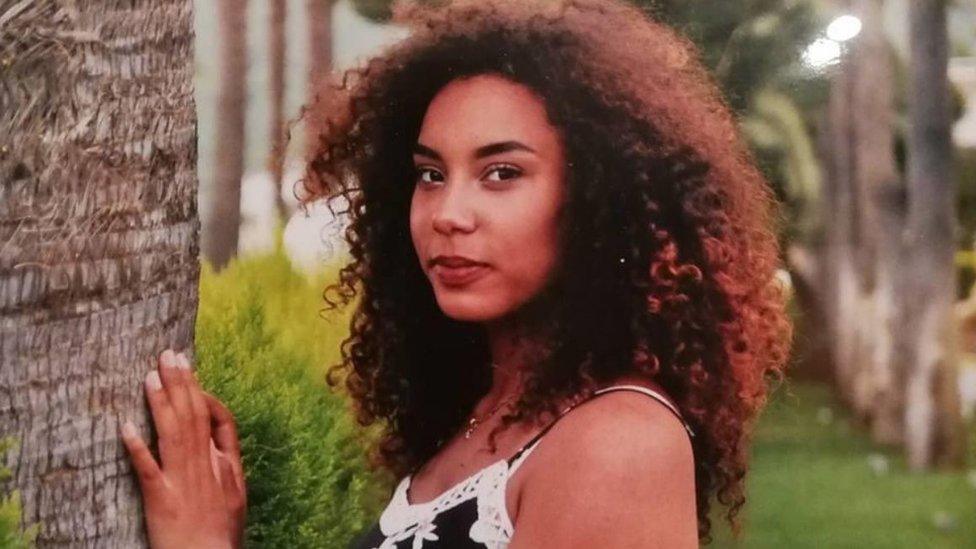Racism at top school ‘made me determined to speak out’
- Published
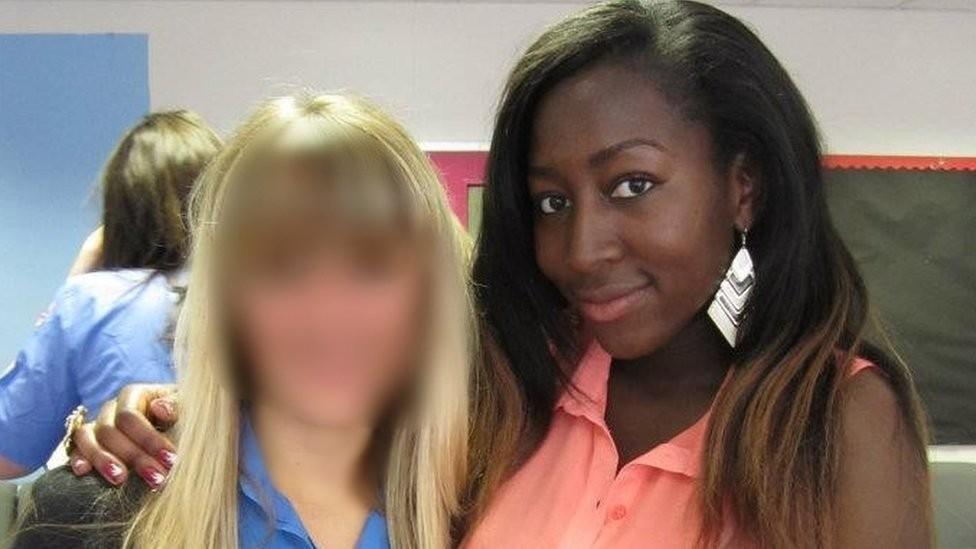
Growing up in Croydon, Vivienne Dovi said she never "felt ashamed of being black"
When Vivienne Dovi moved from her multicultural Croydon state school to a top grammar school she began a fight against discrimination.
Growing up she never "felt ashamed of being black" but after joining the school, which Ms Dovi asked the BBC not to name, she said she had to constantly justify her existence.
Following on from the recent Black Lives Matter protests Ms Dovi, 26, decided to speak out and explain how going to a high-performing sixth form taught her how to "change how I spoke and act" to avoid being labelled as "aggressive, ghetto or angry".
'It was a sign'
In 2010, she was "the only one" from her school to get into the elite sixth form in another borough.
The Croydon student believed it was a sign that it was the right school for her, despite offers from several sixth forms.
On a tour of the school, the facilities and extra-curricular societies inspired her to apply.
"It just hit my competitive nerve in me. I left knowing I wanted to get good grades and go there."
Ms Dovi said she knew the school would improve her chances of going to a good university.
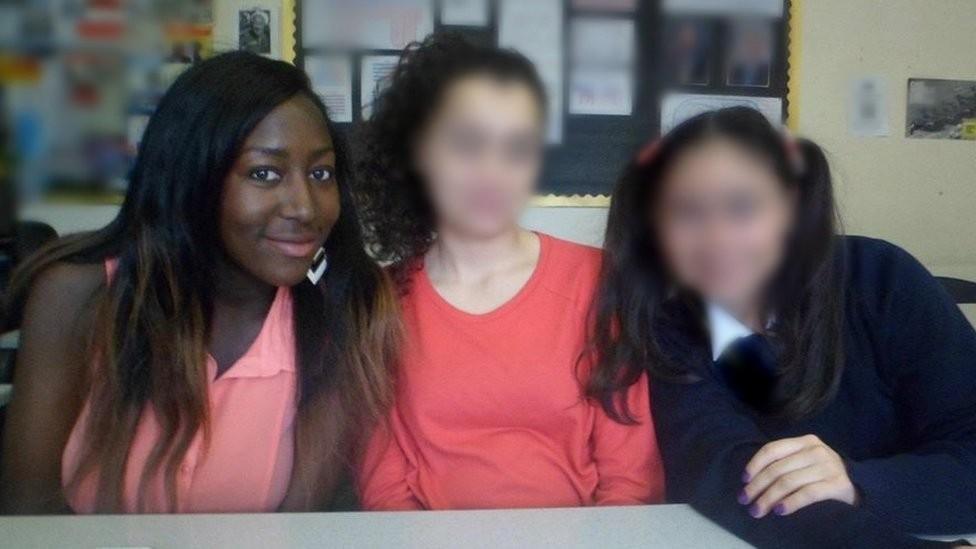
Ms Dovi said she was made to feel "other" by teachers at her school
'The wrong colour '
Within weeks of joining the school one teacher began making comments about her race and background, she said.
"He told me I was lucky to get from my home in Croydon without getting stabbed."
A second teacher "was applauded for going to Croydon one weekend".
"It made me feel very othered. I was always having to justify my existence and where I came from."
Issues with one of her teachers culminated when he told the class "he had stopped talking to his Jamaican friend because she was the wrong colour".
"I remember crying for hours in my favourite teacher's class. I couldn't believe this was something that was said. No-one else stood up or said he was wrong."
Ms Dovi said other students also made comments about her because of her race.
"I was told I was ghetto," she recalled.
"I was getting the same grades as them, I was head of the same societies, I was a prefect.
"So, it was either because of where I come from or what I look like because it can't have been what I was doing."
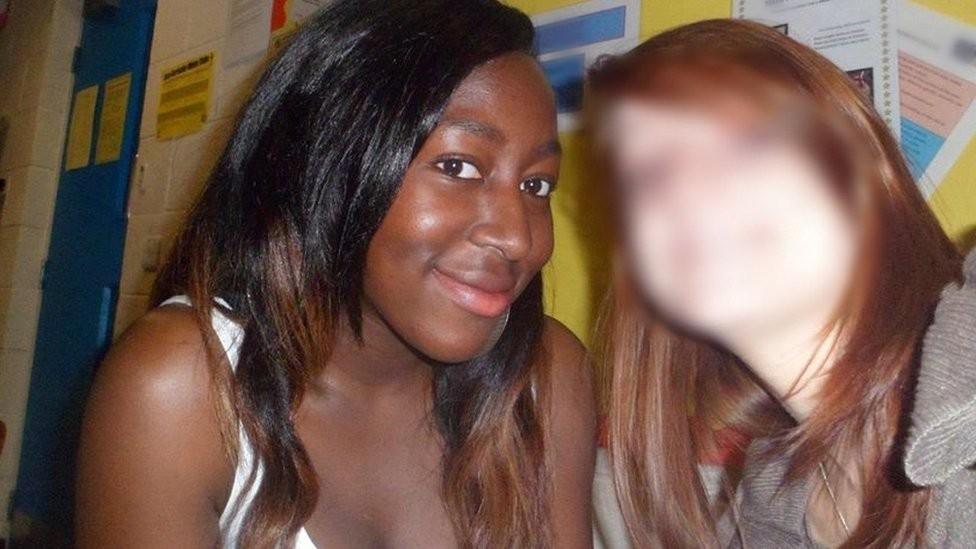
Ms Dovi said she would often be relied upon to educate her classmates on racism and racial bias
Shortly after a neighbourhood watch volunteer shot and killed 17-year-old Trayvon Martin in the US a debate started in her politics class about racial profiling, and stop and search.
A fellow student said some black men "just look more criminal".
It was left to Ms Dovi to defend black people's right to go about their day without getting stopped by police.
'Blow up Africa'
One incident stood out above others.
"I was walking to class and I saw a poster for the debating society saying the next event will debate whether to blow up the African continent," she said.
"I could not understand what I was reading.
"I now laugh at this. If I didn't laugh I would have to process how deep this hurt me.
"To them, it was just a fun abstract issue to debate, but for someone who is actually African to have to defend the existence of Africans that was mind-blowing."
The head of sixth-form agreed to stop the event but "tried to be very diplomatic about everything," she said.
"I didn't get the 'what the actual hell' response I hoped for."
Taking a stand led to Ms Dovi being ostracised by some of the debating society.
"You can feel very alone. Being a teenage girl isn't the easiest of times anyway, and this just made it worse."
Positive change
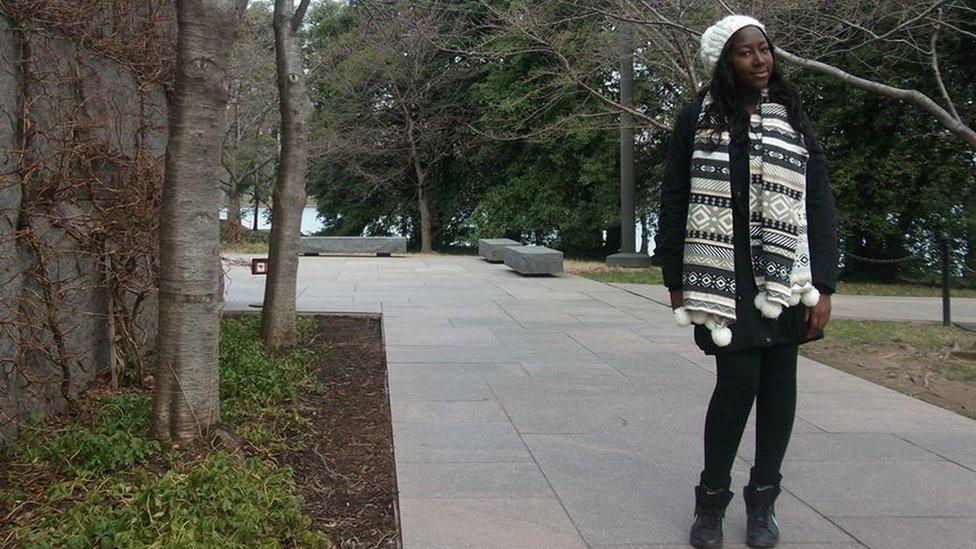
Ms Dovi said the school did many things well and helped change the course of her life
Despite her experiences, Ms Dovi said the school changed her life in "many positive ways".
She made some great friends and it supported her academic work and pushed her to excel.
"I was around people who wanted me to do better," she said.
In particular, her politics teachers completely changed her life.
"I had no interest in politics when I arrived. But when I left I won the school's award for government and politics."
Ms Dovi went on to study political economy at university: "The whole trajectory of my life came from those teachers."
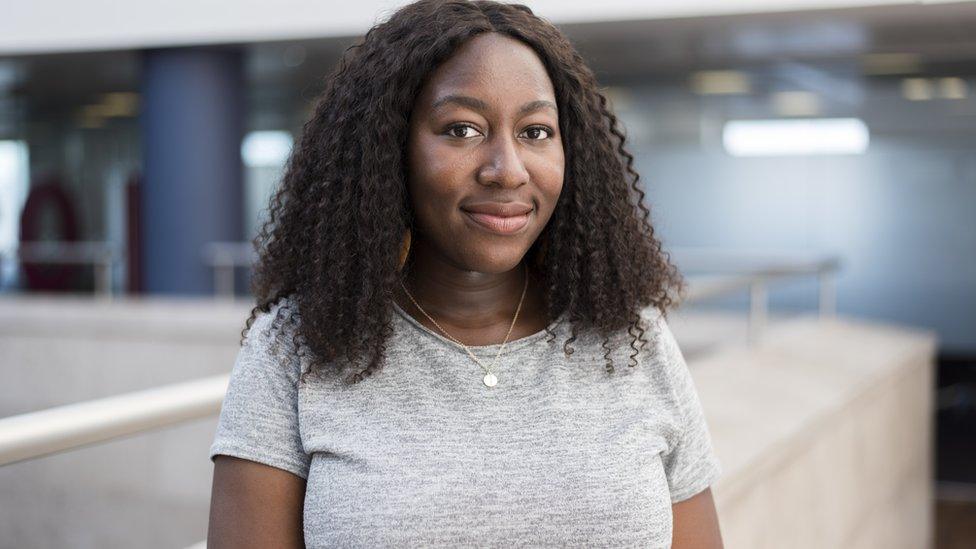
"Everything I do tends to be focused on helping the black community," Ms Dovi said
But Ms Dovi said she was still dealing with the impact of her experiences at school.
"Racism is a form of trauma. Enduring racism at that stage in my life opened my eyes to what I would experience in later life.
"The biggest realisation was that I would be a minority in most spaces, causing me to seek safe spaces in the form of communities for black women.
"I would subconsciously code switch - changing how I speak and act - as a result, to avoid being labelled as aggressive, ghetto, or angry.
"The silver lining is that experiencing racism made me more determined to talk about it."
Ms Dovi now works as a media executive and is a regular writer on the experiences of black women.
She also runs a travel website aimed at providing guides and content for black people, called Melanin Travel.
In response to Ms Dovi's comments, her former school said: "Events that happened nearly 10 years ago are not any less important to the person who experienced racism or the institution where it happened.
"I would urge Vivienne or anyone who has experienced racism or racial bias from staff or students at the school to get in touch."
The school's head teacher said: "We are educating ourselves, listening to and engaging with our community to support our anti-racism strategy."
'We want to live'
Since opening up about her experiences a few classmates have reached out to apologise, Ms Dovi said.
"Some of these people may have grown in to better people but it doesn't mean they're anti-racist," she says.
"If people want to proclaim black lives matter but aren't taking the experience of black lives around them seriously then they really need to question if they support black lives.
"Both teachers and students were complicit in the reason we're having this revolution.
"Black Lives Matter is not just about black people being killed - we want to live."
- Published30 June 2020
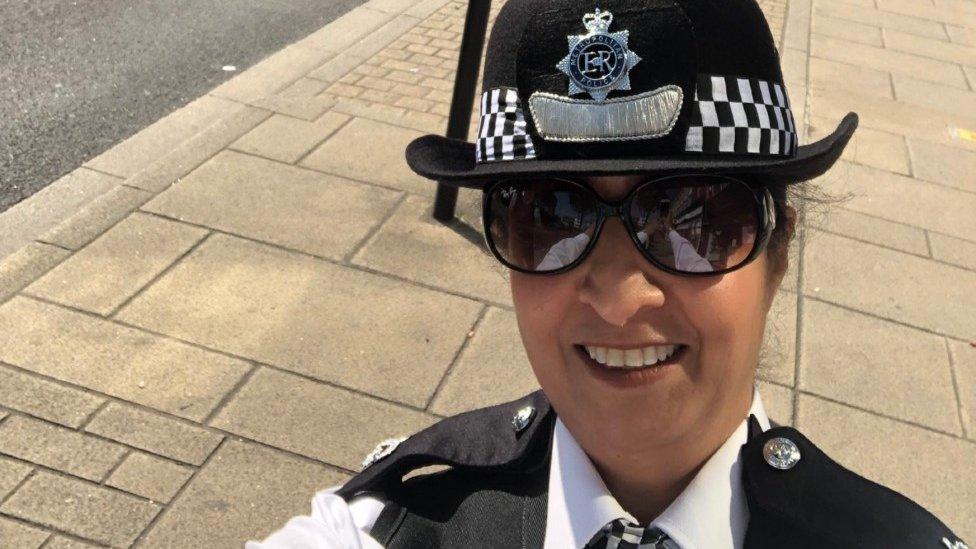
- Published14 June 2020
